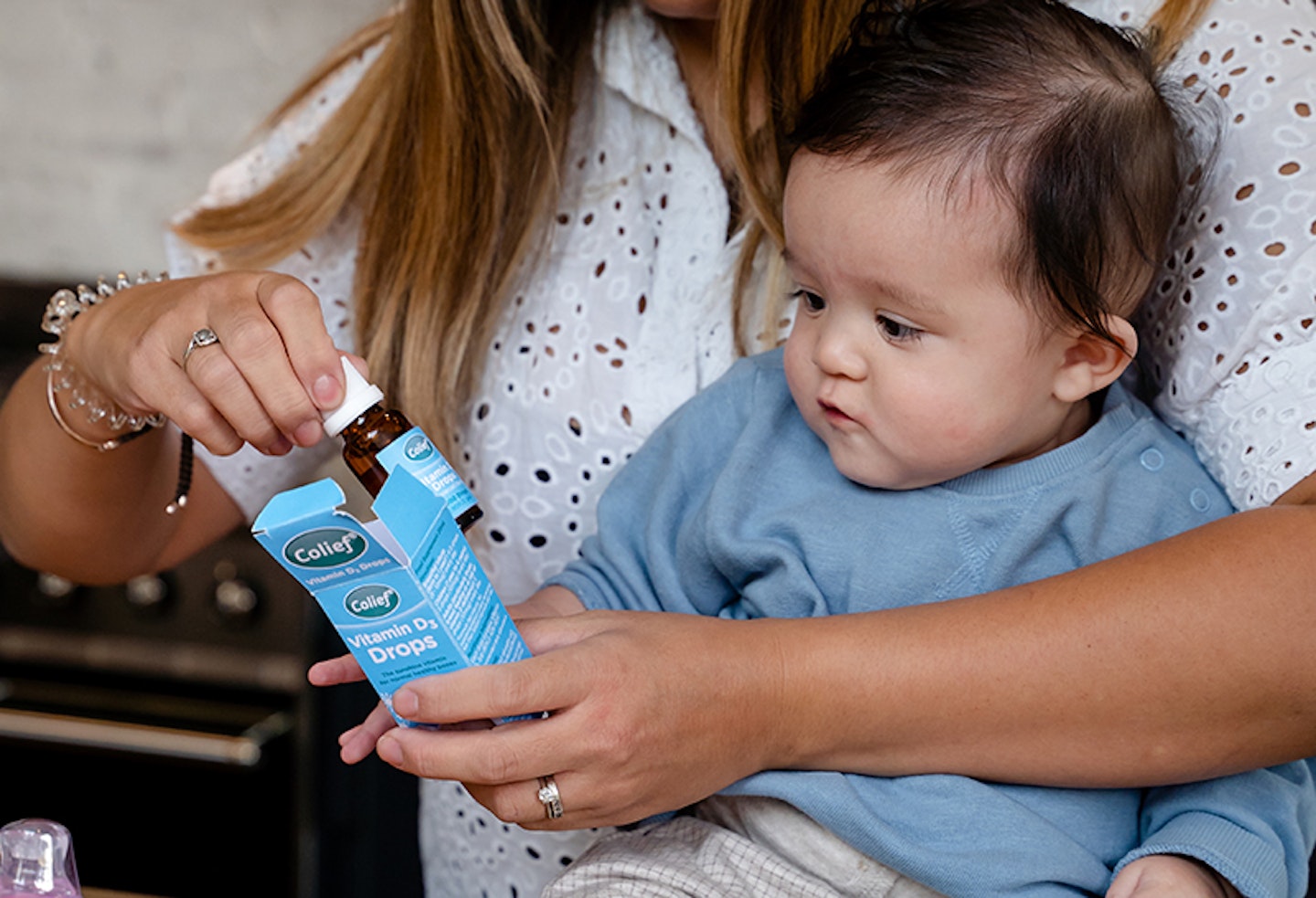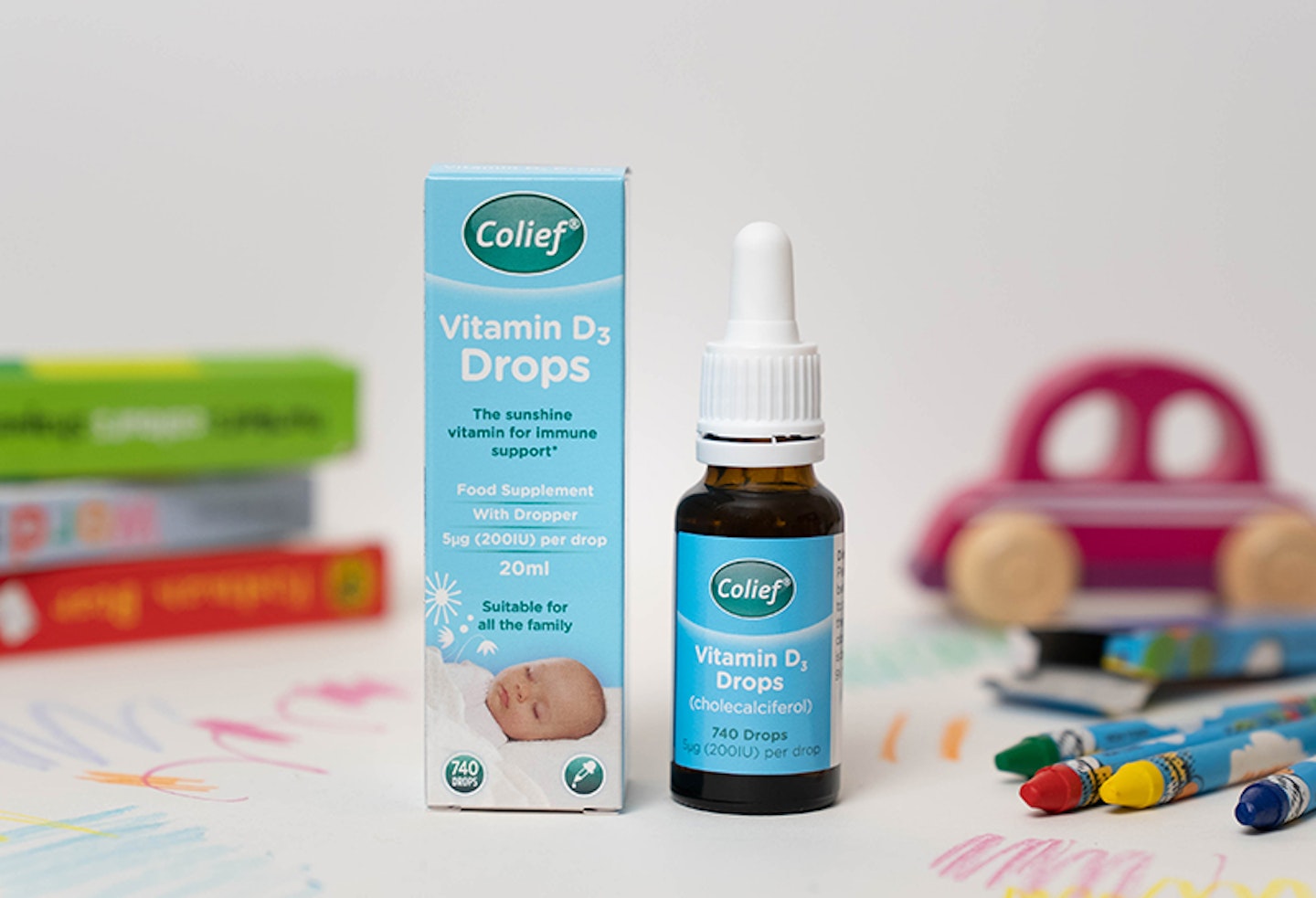Advertisement Feature
Vitamin D is important for bone strength and development so is particularly important for babies and children. It also helps maintain normal immune system function. But how do you know if your little one is getting enough vitamin D?
According to nutritionist Jenna Hope, "In the UK there is a significant risk of vitamin D deficiency due to the lack of sunlight in the winter months. Additionally, factors which can impact vitamin D synthesis include: melanin concentrations, the use of sunscreen, dark clothing and the time of day (for example when the sun is at its lowest)."
Vitamin D can be absorbed via food intake or can be formed in the skin under the influence of sunlight. However, Jenna advises that "obtaining adequate amounts of vitamin D from the diet can be challenging as dietary sources are limited. The very few food items that contain vitamin D include salmon, milk*, eggs, mushrooms and fortified products."
The latest government advice in the UK is that infants should begin taking a vitamin D supplement from birth, and pregnant and breastfeeding women, as well as infants and children, are at particular risk of a vitamin D deficiency.

"The government recommends children in the UK to supplement with between 8.5-10µg per day all year round," adds Jenna. "This is due to the fact that children may be at a higher risk of vitamin D deficiency as a result of reduced sun exposure and a greater use of sunscreen.
"Vitamin D3 is the body’s preferred form of Vitamin D as it’s bioidentical to the Vitamin D which we synthesise from the sun. This form can be far more easily absorbed and utilised within the body."
Top tips on getting enough vitamin D
-
Some foods in the UK and Ireland are fortified with vitamin D, including some yogurts, some breakfast cereals and some breads. Try to incorporate these into your diet and eat oily fish once or twice a week.
-
As we see a reduced amount of daylight during the winter months, it’s important you and your family are still getting enough Vitamin D, which is where Colief Vitamin D3 Drops can help.
-
Take a daily supplement of 10 micrograms (400IU) and look out for the preferred form of vitamin D3.
Colief Vitamin D3 Drops

Suitable for all the family, Colief Vitamin D3 Drops is a food supplement rich in vitamin D3 and the ideal solution for providing the required dose of vitamin D3. The drops do not contain flavourings, added sugar, preservatives or colourant.
"Two drops of Colief Vitamin D3 drops provides the recommended 10µg, says Jenna. "The Colief drops can be mixed with food or drink for consumption, drops are easily absorbed and are a great option for the whole family."
*Not suitable for infants consuming 500ml or more formula milk daily.
Find out more via the Colief website, or follow Colief on Facebook or Instagram.
